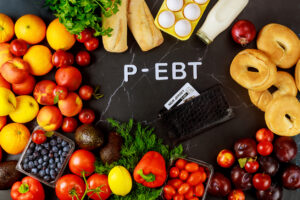Snap Violation Attorney Kansas Missouri
A scam to steal food stamp benefits from some of Kansas City’s poorest families picked up again this summer.

Thieves installed inconspicuous gadgets at grocery store checkouts, many along Independence Avenue in Kansas City’s northeast, and skimmed the data — and dollars — right off the EBT (electronic benefit transfer) cards the state issues to distribute aid.
Missouri officials believe they have largely contained this latest wave of fraud that’s stolen grocery money from about 1,500 people.
“(But) they’ll come up with another scheme,” said Dana Carrington, chief of investigations with Missouri’s Department of Social Services.
The Supplemental Nutrition Assistance Program, or SNAP, is one of 15 federal food aid programs. Combined, they reach a quarter of all Americans each year. SNAP dollars, which are designated to low-income people, can be used to buy groceries.
Around 330,000 Missouri families receive the food benefit each month. In fiscal year 2024, the state paid out $1.6 billion in SNAP benefits through EBT cards. This year the state added summer food aid, known as Sun Bucks. So far just over $35 million of that summer aid has been paid out, also using EBT cards.
States distribute SNAP on EBT cards that look, and can be used, like a credit card. But unlike credit cards, which contain a chip that makes data harder to steal, EBT cards leave information like account numbers and PINs unencrypted. When someone swipes an EBT card’s magnetic strip through a phony card reader, they’re basically handing over the keys to their food stamp
How SNAP or food stamp dollars are stolen
Carrington said criminals often place skimmers at self-checkout stations in small bodegas where security is limited. Most often, the stores are in poor neighborhoods. Once an EBT card is swiped and account data is captured, criminals can transfer it to a cloned card. And that’s how money is stolen.
In the latest scam to target Kansas CIty, criminals use the EBT card data they’ve stolen in Kansas City and elsewhere. Then they cash that information in by setting up phony storefronts in New York City. That makes it look like they were buying groceries there, when they were actually just draining accounts.
Carrington said his team in Missouri is sharing information with New York law enforcement agencies. So far, though, no one has been prosecuted.
“These are our most vulnerable families,” said Karen Siebert, advocacy and public policy adviser for Harvesters — The Community Food Network. “That’s heartbreaking.”
Victims can apply to have stolen funds reimbursed. Carrington said that process typically takes a couple of weeks. The federal government has money set aside for reimbursing victims of card skimming.
During the third quarter of 2024, the federal government spent $53.5 million reimbursing states for stolen benefits, resulting from almost 288,000 fraudulent transactions. Since Congress began reimbursing states for stolen benefits two years ago, the government has replaced almost $151 million worth of benefits.
Those federal reimbursement funds are only guaranteed through Dec 20. After that, federal money designated for reimbursements will run out if Congress doesn’t act.
While some states are looking at issuing more secure chipped EBT cards, Missouri doesn’t have plans to do that. Chipped cards are more expensive, and their cost would fall to states without federal help.
Missouri is among five states selected last year to test mobile payment technology, so recipients could spend benefits using their mobile phones. But it is unclear when that will begin, or if it will continue under the new federal administration.
In the meantime, Carrington said it’s important for people to take precautions so they can avoid being victims of benefit skimming, which could affect any benefits paid using EBT cards. In Missouri, that includes SNAP, Sun Bucks and Temporary Assistance.
He advises people to: avoid self-checkout stations at stores, which are more likely to have card skimmers; change their card identification or PIN number frequently; and set up their account to block out-of-state purchases.



Recent Comments